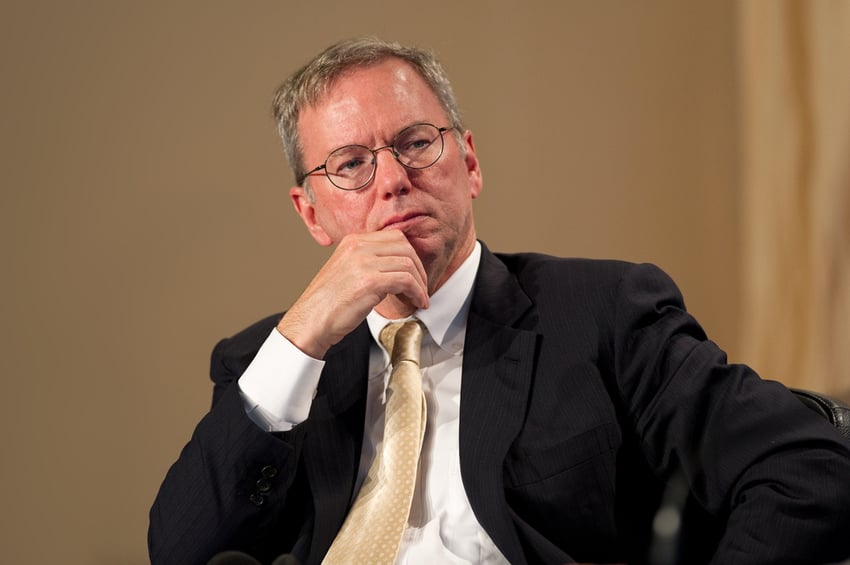Former Google chief executive Eric Schmidt sketched an aggressive road map for artificial intelligence progress, warning that machines will match — and soon eclipse — elite human talent across most creative and technical fields.
What Happened: Speaking at the AI + Biotechnology Summit, co‑hosted by the Special Competitive Studies Project (SCSP), Schmidt predicted "the vast majority of programmers" will be supplanted within 12 months as generative models crank out production‑ready code in any language. Over the same span, he expects AI systems to reach the level of "the tippy‑top of graduate math programs," leveraging formal proof languages such as Lean, to out‑reason human savants.
Two Years: Self‑Improving AI
Schmidt reveals that by 2027, research labs such as OpenAI and Anthropic could see 20% of their research code written autonomously, a feedback loop Schmidt called "recursive self‑improvement." Pairing that capability with advanced reasoning, he said, lays the groundwork for broader disruption of business and government workflows.
Three To Five Years: Artificial General Intelligence
Schmidt subscribes to what he dubbed the "San Francisco consensus": between 2028 and 2030, a single model will rival the best mathematician, physicist, writer, or artist. That milestone — artificial general intelligence — would put a "smartest human" in every pocket, able to design homes, negotiate contracts, or draft policy with minimal oversight.
Six Years: Super‑Intelligence
Extend the scaling curves, Schmidt argued, and "artificial super‑intelligence" emerges by 2031 — machines smarter than the sum of humanity, operating largely outside human guidance. Realizing that the future will hinge on massive computing power, he cautioned, and society still lacks language, let alone policy, for managing intellect "that's largely free."
Schmidt rejected the notion that everyone will be unemployed, but stressed the window to prepare for AI's cascading impact is closing fast: "The foundation is being locked in. We're not going to stop it."
Why It Matters: Schmidt had earlier warned that an unchecked race for super‑intelligence could mirror a nuclear arms sprint. In a March 7 white paper with Alexandr Wang and Dan Hendrycks, he urged the U.S. to pursue "Mutual Assured AI Malfunction" safeguards and non‑proliferation pacts to prevent destabilizing, Cold‑War‑style escalation.
xAI founder Elon Musk, meanwhile, strikes a middle course: he pegs a 10‑20% chance that super-intelligent AI ends humanity but still expects machines to outthink us by 2029 and create "abundance," abandoning his 2023 pause proposal. Palantir's Peter Thiel is more skeptical, arguing true AGI could take 15‑20 years and calling near‑term super‑dominance a distant "holy grail."
Photo Courtesy: Frederic Legrand – COMEO on Shutterstock.com
© 2026 Benzinga.com. Benzinga does not provide investment advice. All rights reserved.

